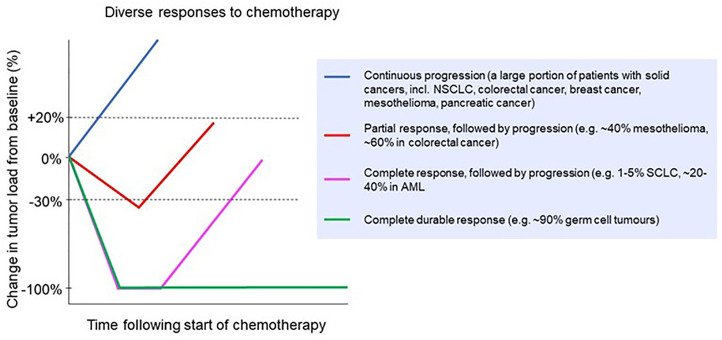Cancer Research Reveals Chemo’s Molecular Strike Against Cancer Cells

Cancer research has taken a significant leap forward with groundbreaking insights into how chemotherapy impacts cells at the molecular level. New studies reveal that chemotherapy primarily targets and kills cells that are actively dividing by damaging their genetic material inside the nucleus. This process disrupts the cancer cell’s ability to replicate, making it an effective weapon against rapidly multiplying tumors.
While chemotherapy drugs work in different ways, their common goal is to interfere with the mechanisms responsible for cell division. Some drugs damage the cell’s control center, others interrupt vital chemical processes, and some target cells during the phase when they are copying their genes or are on the brink of division. Because cancer cells divide much more frequently than normal cells, they are especially vulnerable to these attacks, while most healthy cells—being at rest—remain largely unaffected.
Recent technological advances have allowed researchers to probe even deeper, examining protein turnover and function at the single-cell level. By using innovative methods, scientists now distinguish between dividing and non-dividing cells, shedding light on why some cancer cells are resistant to treatment. Importantly, non-dividing cancer cells, previously undetectable, have been found to remain metabolically active and continue influencing their environment.
This detailed molecular mapping opens up new avenues for therapy development, enabling a better understanding of cellular behavior and resistance. The knowledge gained could drive future breakthroughs in diagnostics and personalized treatment strategies, giving hope for more effective and targeted cancer therapies.
Recent Health Articles
Countries Facing Severe Health System Disruption as WHO Warns on Global Funding Cuts
WHO warns that health systems in many countries are facing immediate disruptions due to deep funding cuts, putting millions of …
Global Health Crisis Intensifies: The First 100 Days of a Growing Humanitarian Emergency
A global health crisis unfolds as WHO reports 70% of surveyed countries experiencing system disruptions due to aid cuts, with …
Breakthrough Study: Cancer Immunotherapy Equally Effective in Older and Younger Patients
New research confirms immune checkpoint inhibitors are equally effective in cancer patients regardless of age, offering hope for personalized treatment …
Based on the search results, I'll provide you with three significant recent health news articles in the requested format: Global Health Funding Cuts Causing Critical System Disruptions
Global health funding reductions are leading to critical medicine and supply shortages with potential long-lasting effects on worldwide healthcare systems. …
U.S. Foreign Aid Freeze Sparks Global Health Crisis as Trump Administration Dismantles USAID
The Trump administration's 90-day foreign aid freeze has devastated global health programs, dismantling USAID, terminating over 5,600 jobs, and shuttering …

Countries Facing Severe Health System Disruption as WHO Warns on Global Funding Cuts
WHO warns that health systems in many countries are facing immediate disruptions due to deep …

Global Health Crisis Intensifies: The First 100 Days of a Growing Humanitarian Emergency
A global health crisis unfolds as WHO reports 70% of surveyed countries experiencing system disruptions …
Breakthrough Study: Cancer Immunotherapy Equally Effective in Older and Younger Patients
New research confirms immune checkpoint inhibitors are equally effective in cancer patients regardless of age, …


